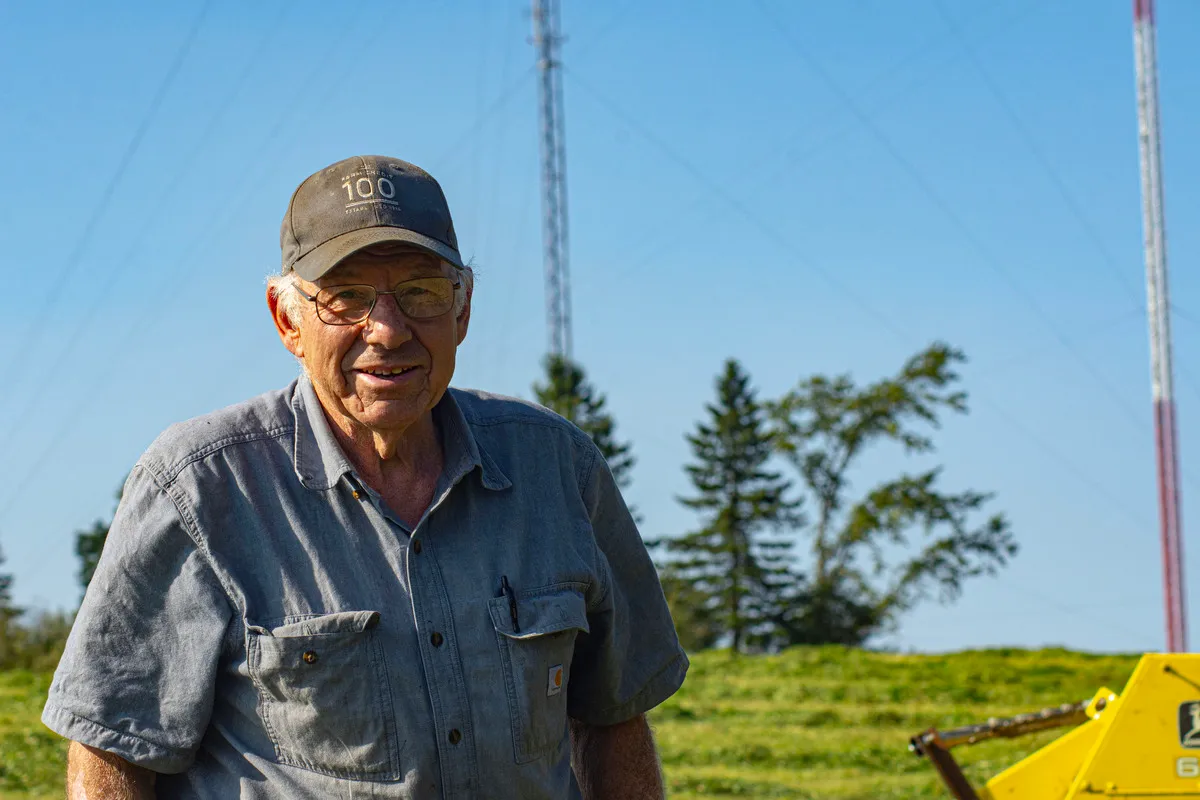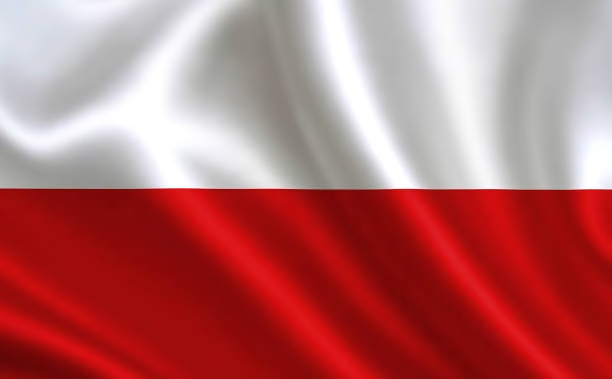Lilley Farms, a cornerstone of northern Maine’s dairy economy since its establishment in 1946, has been a symbol of resilience and dedication for nearly 70 years. The farm, cherished for its contributions and historical importance, has been a pillar of the local agricultural community. Despite the significant change of discontinuing dairy production and selling its 130 dairy cows, effective at the end of the month, Lilley Farms’ resilience shines through. This decision, while impactful, is a testament to the farm’s ability to adapt and evolve, inspiring hope for the future of the local agricultural community in northern Maine.
“We knew this was going to happen and had been preparing for it,” says Perry Lilley, Lilley Farms’ co-owner.
This decision marks the end of an era and raises serious concerns about the future. How will this shift affect northern Maine’s dairy producers and the local economy? The closure of Lilley Farms’ dairy production will affect the dairy sector and have ripple effects on the local economy, from suppliers to consumers. Let us delve into the more considerable consequences of this significant change.

Perry Lilley, co-owner of Lilley Farms in Smyrna takes a break from topping off hay on Thursday. The farm will stop producing milk the end of the month. Credit: Kathleen Phalen Tomaselli / Houlton Pioneer Times
End of Milk Production: A Turning Point for Lilley Farms
Lilley Farms, a northern Maine staple, has a rich history dating back to 1946. Perry Lilley’s father founded this farm, which has been a cornerstone of the local dairy sector for almost seven decades. Their quest is more than simply providing milk; it exemplifies unrelenting devotion and family connection. Lilley Farms and Houlton Farms Dairy worked together for over 60 years, through good times and bad.
This alliance was not just about business but about mutual respect and trust. “We knew this was going to happen, and we were prepared,” said Perry Lilley, co-owner of Lilley Farms. “We met last spring with Houlton Farms and agreed on a date for us to sell our cows, and they would cease bottling milk. It was a mutual decision.” These simple words encapsulate the essence of their 60-year partnership, characterized by a strong sense of camaraderie and a shared vision for the dairy industry’s future.
For many in the sector, a 75-year operation is noteworthy and significant. It serves as a beacon of resilience and adaptation in an ever-changing market. Lilley Farms and Houlton Farms Dairy’s connection was more than just a business cooperation; it demonstrated the power of togetherness. Their efforts helped each other weather the strains of a volatile business, aided by a common heritage and a shared dedication to excellence.
Today, as Lilley Farms prepares to finish this chapter, it’s time to reflect and honor what has been accomplished. It’s also a reminder to all dairy farmers to be alert about the health and trajectory of their processors since their future may rely on it. The cessation of milk production at Lilley Farms signals the end of an era. Still, it also heralds the start of new possibilities – an homage to their illustrious history and an optimistic look forward.
A Critical Moment for Lilley Farms
Lilley Farms is now at a tipping point. They’ve opted to sell 130 dairy cows and discontinue milk production. Imagine this: Every day, 9,000 pounds of milk are gone. Why? Lilley Farms has no customers for its milk after Houlton Farms Dairy stopped processing milk at its Houlton facility.
According to Eric Lincoln, the general manager of Houlton Farms Dairy, they needed help to keep up with the losses. “We haven’t had the sales,” he said in an interview. The decline in demand for dairy products and unsustainable financial losses rendered it unavoidable. It’s a difficult pill but a sharp reminder of the financial tightrope that dairy processors often tread.
Broad Challenges in the Dairy Industry: Beyond Just Producing Milk
So, what are the significant difficulties that dairy producers face today? It’s more than simply producing milk; it’s a challenging business environment. Milk price declines, agricultural consolidation, and the need for expensive technology are just a few challenges. These factors make it difficult for smaller farms to compete, and this trend is not new but an emerging worry altering the dairy business.
Farmers in Northern Maine face much more difficult challenges. Isolation and economic demands complicate an already tough position. Imagine yourself in Aroostook County, remote from major markets and logistical centers. It makes everything from feed prices to distribution more difficult.
Perry Lilley adequately expresses it when he says, “It’s growing difficult to earn a livelihood. Milk prices have not kept up, and we are isolated here in northern Maine.” His thoughts connect with the challenges of running a small dairy farm in today’s environment.
Ripple Effects of Lilley Farms’ Milk Production Closure: A Community Impact
The termination of Lilley Farms’ milk production has far-reaching consequences for the surrounding community. You may be wondering what this means for other firms and suppliers.
First, consider the immediate loss of revenue for local suppliers. Feed firms, veterinary services, and agricultural equipment suppliers will all feel the impact. Dairy cows need nutrition, healthcare, and upkeep. The abrupt disappearance of 130 cows is more than just a figure; it represents a considerable loss of income for these suppliers.
And it is more than direct suppliers who will see a shift. The local economy lives on interconnection. Small grocery stores and regional distributors who formerly relied on Lilley Farms’ milk would now have to acquire it elsewhere at a more significant cost. These higher expenditures might be passed on to consumers.
Eric Lincoln summed up the more significant issues when he said, “We haven’t had the sales.” This comment represents a harsh reality for many in the dairy industry. Lower sales imply lower revenue, making it more difficult for companies like Houlton Farms Dairy to justify their ongoing milk processing activities.
Beyond economics, there is a social factor to consider. Lilley Farms and Houlton Farms Dairy were long-standing community stalwarts. Their disappearance marks the end of an era, upending customs and everyday routines that many residents valued. The communal relationships developed via these everyday meetings are as meaningful as the commercial transactions. The loss of these community connections significantly impacts Lilley Farms’ decision.
So, as Lilley Farms considers its next initiative and Houlton Farms alters its emphasis, the local network of companies, suppliers, and people will need to adapt. This ripple effect acts as a warning, pushing all dairy farmers to be alert about the health of their relationships and the markets they service.
Lilley Farms: Looking Forward Without Leaving Agriculture
Lilley Farms is not leaving agriculture behind. The Lilleys are actively investigating new agricultural operations that will most use their current land and structures. While different from dairy production, these initiatives seek to be less time-consuming yet equally significant. This forward-thinking approach inspires optimism for the future of Lilley Farms and the local agricultural community.
Perry Lilley said, “We are going to do something that takes less time,” indicating a desire for a change of pace while continuing to work with animals. They are still in the planning phases, debating and deciding on their future actions. “We want to do something with animals that will utilize our land and buildings,” Lilley told me.
The family views this shift as a chance to innovate and adapt to the changing agricultural world, ensuring their rich farming tradition continues in a new and probably more sustainable form.
The Bottom Line
Lilley Farms’ milk production ends after 75 years, signaling the end of an era for the farm and the whole agricultural community in northern Maine. The shutdown illustrates minor dairy farmers’ more significant issues, ranging from declining milk sales and stagnating pricing to growing plant-based alternatives. This transition highlights the dairy industry’s changing terrain and the need for adaptability and knowledge.
So, how can dairy producers adjust to the changing times? It is critical to be proactive and monitor industry developments, customer preferences, and the financial condition of the processors they operate with.
As we look to the future, let us remember the significance of innovation, diversity, and strategic planning in dairy farming. Staying educated and prepared is critical while navigating the intricacies of today’s agricultural environment.
Summary:
Lilley Farms Inc., a cornerstone of northern Maine’s dairy industry, is ending milk production after 75 years. Once supplying 9,000 pounds of milk daily, the farm is selling off its 130 dairy cows. This decision follows Houlton Farms Dairy’s move to cease milk processing at its Houlton facility. Despite the industry’s challenges, such as declining milk sales and non-competitive prices, both businesses plan to pivot: Houlton Farms will continue with its niche products, and Lilley Farms is exploring a new venture with animals on its existing land, marking the end of their six-decade relationship. “We’ve known this was happening and have been preparing for it. It was a mutual decision,” said Perry Lilley, co-owner of Lilley Farms. As Lilley Farms prepares to finish this chapter, it is essential to reflect on the business’s accomplishments and remind all dairy farmers to be alert about the health and trajectory of their processors. The ripple effect of Lilley Farms’ decision and Houlton Farms’ shift in focus will require adaptation from the local network of companies, suppliers, and people.
- Lilley Farms Inc. exits the milk production business after 75 years, selling off 130 dairy cows.
- Houlton Farms Dairy ceases milk processing at its Houlton facility, influencing Lilley Farms’ decision.
- Both businesses plan to continue operations in other agricultural ventures.
- Lilley Farms is exploring new ventures involving animals, utilizing their existing land.
- The transition marks the end of a six-decade relationship between the two companies.
- Declining milk sales and non-competitive prices are significant challenges for dairy farmers.
- Dairy farmers should stay vigilant about the health and direction of their processors.
- The closure’s ripple effects will impact the network of local companies, suppliers, and communities.
Learn more:
- Can Maine Reverse Its Dairy Farm Decline?
- The Hidden Crisis: Why U.S. Dairy Farms Are Disappearing Faster Than Ever!
- End of an Era: The Final Days of Hartford’s Last Dairy Farm
 Join the Revolution!
Join the Revolution!
Bullvine Daily is your essential e-zine for staying ahead in the dairy industry. With over 30,000 subscribers, we bring you the week’s top news, helping you manage tasks efficiently. Stay informed about milk production, tech adoption, and more, so you can concentrate on your dairy operations.







 Join the Revolution!
Join the Revolution!




